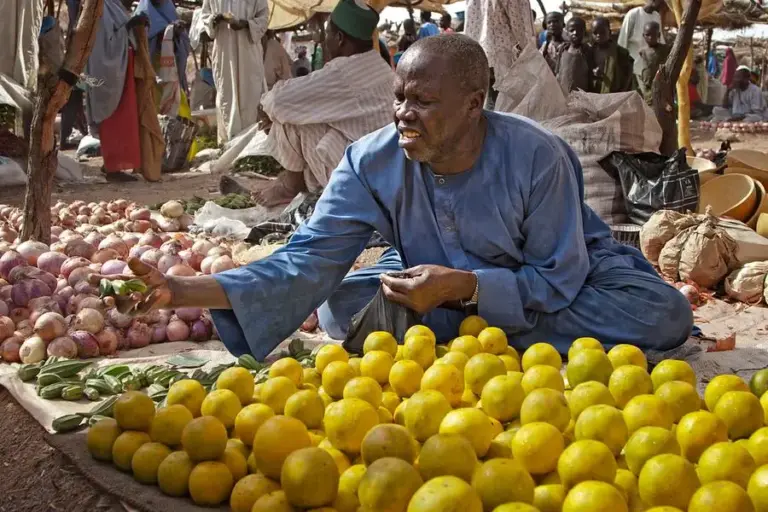Nigeria’s annual inflation rate dropped for the second consecutive month, fueling optimism that price pressures are easing and could continue to decline.
According to the National Bureau of Statistics (NBS), consumer prices rose 23.2% in February, down from 24.5% in January. Food inflation slowed to 23.5% from 26.1%, while core inflation edged up to 23% from 22.6%.
This cooling inflation trend may encourage the Central Bank of Nigeria (CBN) to maintain interest rates when policymakers meet in May. In its last meeting, the CBN held its benchmark rate at 27.5%, pausing its aggressive tightening cycle aimed at stabilizing the naira and curbing inflation.
Economic Outlook: Lower Inflation, Potential Rate Cuts
According to Bloomberg Economics, inflation is expected to continue declining, with forecasts indicating that Nigeria’s consumer price index (CPI) could drop below 20% by the end of 2025.
“Annual headline inflation in Nigeria cooled for a second consecutive month in February. We anticipate more of the same as energy prices moderate ahead – our call is for the CPI to slip below 20% by the end of 2025. Policymakers will probably start easing in the second half of 2025.”
— Yvonne Mhango, Bloomberg Africa Economist
Recent Changes to Inflation Measurement
Last month, the NBS revised Nigeria’s inflation measurement for the first time in 16 years, changing the reference year to 2024 to better reflect the current economic landscape.
As part of this methodology update, the agency reduced the weighting of food and non-alcoholic beverages in the inflation index from 51.8% to 40%.
On a month-on-month basis, headline inflation rose by 2% in February, the NBS reported.
Looking Ahead
With inflation slowing and energy prices expected to moderate, Nigeria’s central bank may shift towards monetary easing in the latter half of 2025, potentially lowering interest rates to support economic growth.
This trend signals a more stable economic environment, offering relief to businesses and consumers grappling with high prices.

